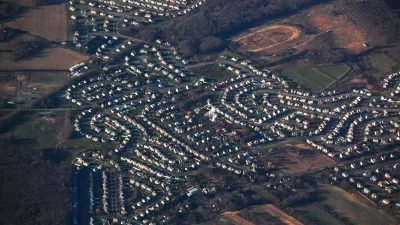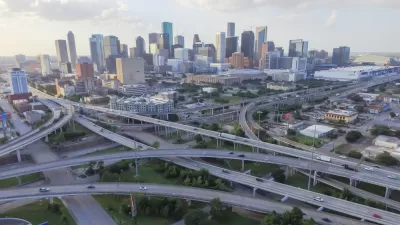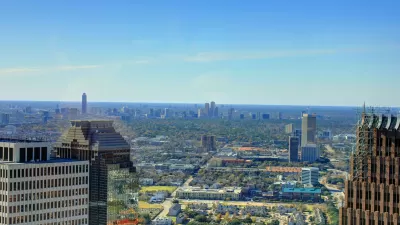Compared with European averages, U.S. and Canadian residents spend 30-50 percent more money and time on transport due to dispersed, automobile-dependent development.

According to data published by economists Stephen Redding and Matthew Turner, the average American household spent approximately 18 percent of its budget on transportation compared with just an average of 12.8 percent among its peer. That means a typical U.S. household spent about five percentage points more of its income, about $1,500 annually, on transportation than the residents of other developed countries.
Table courtesy of City Observatory.
Similarly, the average American worker spent about 51 daily minutes commuting, compared with 39 average daily commute minutes for all other countries. This means that over the course of a year with 250 working days, the typical American commuter spends about 51 more hours commuting than workers in other high income countries. Valued at $15 per hour, the additional cost of commuting to US workers comes to $770 per worker worker per year.
While there may be other reasons for these disparities, they probably reflect American cities' more sprawled, automobile-dependent development patterns.
FULL STORY: Sprawl Tax: How the US stacks up internationally

Planetizen Federal Action Tracker
A weekly monitor of how Trump’s orders and actions are impacting planners and planning in America.

Chicago’s Ghost Rails
Just beneath the surface of the modern city lie the remnants of its expansive early 20th-century streetcar system.

San Antonio and Austin are Fusing Into one Massive Megaregion
The region spanning the two central Texas cities is growing fast, posing challenges for local infrastructure and water supplies.

Since Zion's Shuttles Went Electric “The Smog is Gone”
Visitors to Zion National Park can enjoy the canyon via the nation’s first fully electric park shuttle system.

Trump Distributing DOT Safety Funds at 1/10 Rate of Biden
Funds for Safe Streets and other transportation safety and equity programs are being held up by administrative reviews and conflicts with the Trump administration’s priorities.

German Cities Subsidize Taxis for Women Amid Wave of Violence
Free or low-cost taxi rides can help women navigate cities more safely, but critics say the programs don't address the root causes of violence against women.
Urban Design for Planners 1: Software Tools
This six-course series explores essential urban design concepts using open source software and equips planners with the tools they need to participate fully in the urban design process.
Planning for Universal Design
Learn the tools for implementing Universal Design in planning regulations.
planning NEXT
Appalachian Highlands Housing Partners
Mpact (founded as Rail~Volution)
City of Camden Redevelopment Agency
City of Astoria
City of Portland
City of Laramie





























